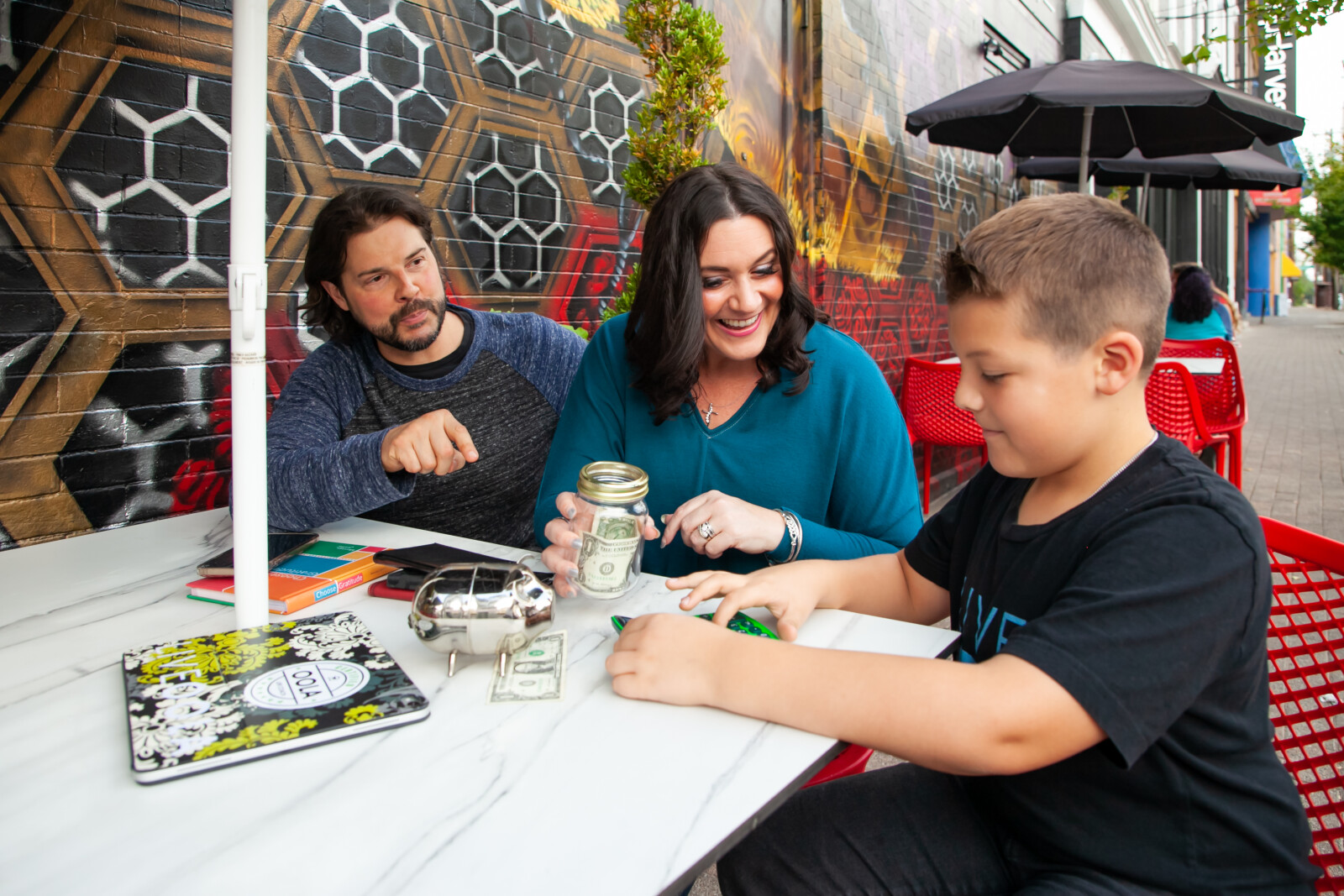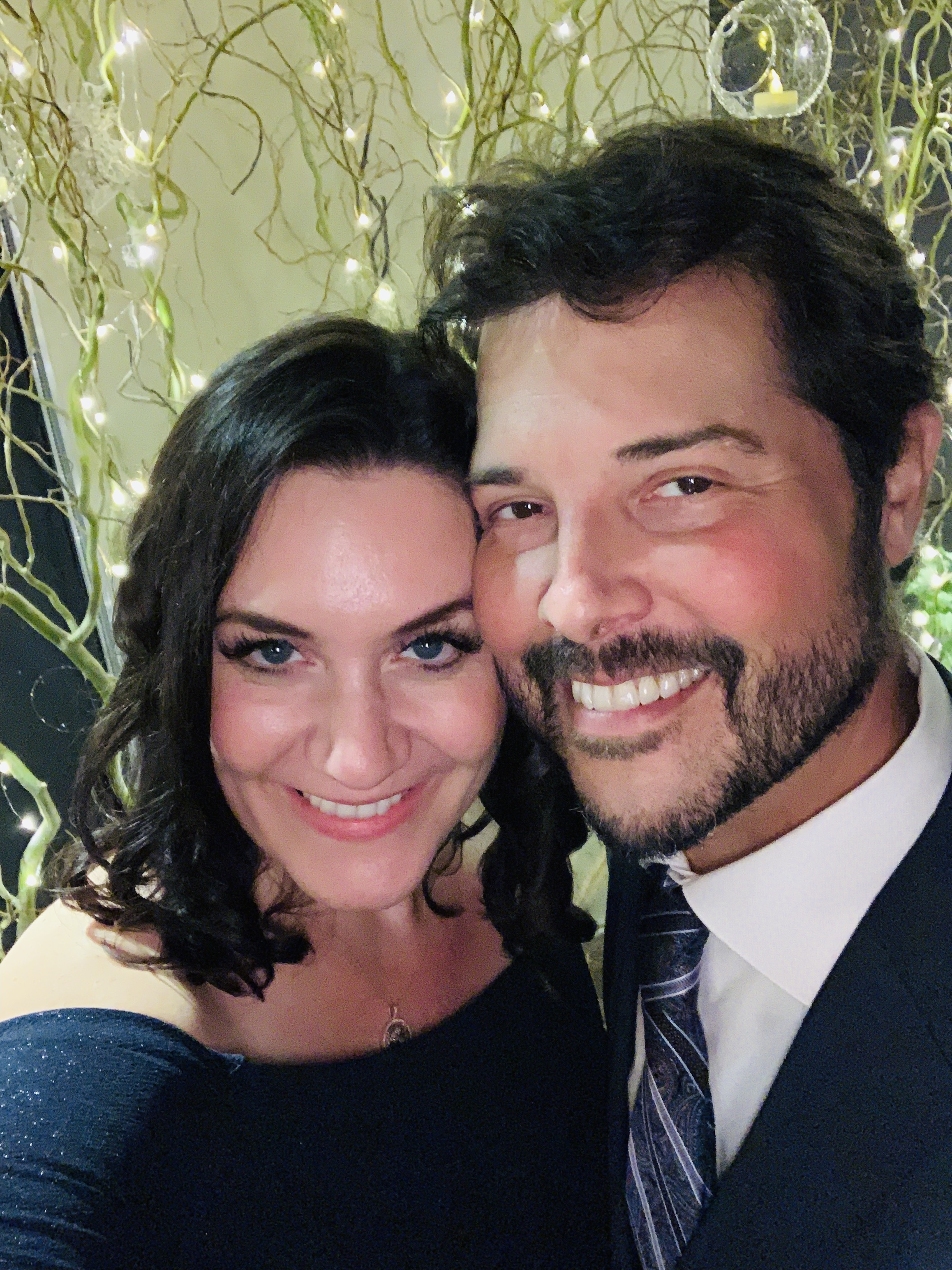
Whether you love it, hate it, or are indifferent to it, money is necessary for modern life. Since there’s no way around the fact that you need it, you can at least have a good relationship with it.
Changing the way you see money – how you receive, give, save, and spend it – is a matter of making intentional changes in your thinking. You can learn to not only enjoy your money more, but to experience less stress around it. And when there’s less stress around money conversations, you’ll find that money itself is less of a burden and more of a friend.
Let’s look at some ways you can begin to make powerful shifts in your money mindset.
Your relationship with money
Maybe you’ve never considered your finances to be a relationship, but think about it. There’s give and take. There’s ebb and flow. Money comes in, it goes out, it grows and depletes, and it helps us get things we want and need.
Everyone has their own unique understanding of and relationship with money. For some, there was never enough when they were growing up and they cling tight to every penny in adulthood. For others, money seemed to cause a lot of fights between their parents, so as adults they overspend in a subconscious effort to keep money far away.
In fact, it seems like you can count yourself incredibly lucky if money has never once been scary, difficult, confusing, or lacking in your life. Even those who are financially successful now often have a difficult money story from childhood, or from lessons they learned as adults.
Your current relationship with money does not define your financial future. Wherever you are starting from, you can choose to change your journey for the better.
Money mindset shifts
1. Stop saying “There’s never enough” and start saying “I’m so grateful for what I have.”
Whatever message we choose to repeat to ourselves, our brain will eventually accept as truth. We can become wrapped up in the same old song and dance. If you find yourself caught up in “never enough,” try instead to find the good. Acknowledge and appreciate every dollar that comes your way, and know that there is always more on its way to you.
Cut off the spiral of negativity and see what shifts in your mind and emotions. Take that a step further and write out a budget. Determine how much you need in a month to pay your necessary bills. See if there’s room for something to be dropped or changed.
2. Cast a long-term vision
It’s entirely possible that some expenses you’re holding onto do not serve you and should be let go.
Set aside 10 uninterrupted minutes to envision your future self. Close your eyes and really picture your ideal life. If success was guaranteed and you could do whatever you wanted for a living, what would your life look like in 3, 5, or 10 years?
Picture in your mind:
- Where do you live?
- Who is there with you?
- What are you wearing?
- What are you eating?
- How do you feel?
Once you’ve gone through those questions thoughtfully, take a look at your budget and/or bank statements. Look at any non-essential spending like subscription services, dining out, shopping, etc. Would future You spend like this? Is your money currently moving you toward your vision or away from it? Which expenses are no longer serving you and can be dropped?
When you have a clear understanding of where you want to go, you can get there so much more easily!
3. Start viewing bills as blessings
If you have bills to pay, you have blessings in your life. Bills are not the enemy.
Open your eyes to the roof over your head, the food in your fridge, the lights and running water around you. Maybe you have a garage with a car inside. You are surrounded by miracles that protect you, sustain you, and make your life easier!
If the things you are paying for are NOT making your life easier or better, that’s when it’s time to reevaluate. You may need a car to get to work, but you don’t really need a brand new car. You need to feed your family, but you don’t really need to order out every single day or week.
Choose to pay your bills with gratitude, knowing they are serving your needs.
More on money & mindset
Ready to start making big, impactful changes in your life and your finances? I’m a Certified Life Coach and work closely with people just like you to help them find balance in not only finances, but all key areas of their lives.

Sharon Davenport’s life mission of helping people began as she was growing up in her family’s Kentucky home. Her parents fostered a loving environment with pizza-and-soda Family Fun Nights, and affectionate rituals like back rubs and foot rubs while sharing about each other’s day.
“My mom was my first life coach and the most important person in my life,” Sharon, who has nearly two decades of experience in health, wellness and personal development, says as we sit down for our interview. “We were extremely close—really, we were best friends.
Read the complete interview at Thrive Global.

When you were a child, your parents probably taught you to say “thank you” to be polite to another person who offered a gift, helped you perform a task, or gave you a compliment. But expressing gratitude doesn’t just benefit other people; it’s for you, too. Harry A. Ironside, Canadian-American teacher and theologian, once said, “We would worry less if we praised more. Thanksgiving is the enemy of discontent and dissatisfaction.”
In fact, feeling and expressing gratitude can actually be good for your health. Keep reading to find out more about the surprising benefits of gratitude, recognize what an impact it can have on others, and learn a new way to express thankfulness to others who have positively influenced your life.
The Benefits We Get Thanks to Gratitude
Saying “thanks” isn’t just a perfunctory action that keeps us in the good graces of other people. Here are just some of the many ways feelings and expressing gratitude can improve your life.
- Being thankful might help you sleep better. “[Gratitude] can lower blood pressure, improve immune function, and facilitate more efficient sleep,” saidRobert A. Emmons, a psychology professor at UC Davis. A 2011 study published in Applied Psychology: Health and Well-Being indicated that those who spend 15 minutes before going to sleep writing down things they are thankful for sleep better and longer. Instead of counting sheep before bed, try counting your blessings.
- Gratitude improves relationships. Showing gratitude can positively impact your relationships both at home and at work. One study indicated that employees perform better at work when their supervisor simply takes the time to say “thank you” when they do well. Another study showed that finding reasons to thank new acquaintances makes them more likely to stick around and be your friend in the long run. Lots of research supports the idea that gratitude strengthens and grows romantic relationships as well.
- Gratitude can reduce depression. As the old, anonymous saying goes, “If you’ve forgotten the language of gratitude, you’ll never be on speaking terms with happiness.” It turns out that feeling and expressing gratitude can actually ward off depression. Eastern Washington University clinical psychologist Philip Watkins “found that clinically depressed individuals showed significantly lower gratitude (nearly 50 percent less) than non-depressed controls.”
- Thankfulness can reduce stress. Another key health benefit of thankfulness is decreased stress. “There’s a number of studies showing that in the face of serious trauma, adversity and suffering, if people have a grateful disposition, they’ll recover more quickly,” Emmons writes. “I believe gratitude gives people a perspective from which they can interpret negative life events and help them guard against post-traumatic stress and lasting anxiety.”
- Thankful people tend to also be empathetic. Interestingly, practicing gratitude not only improves your personal health but also helps you understand other people. A 2012 study conducted by the University of Kentucky showed that participants who ranked higher on gratitude scales were more likely to be empathetic toward others and less likely to seek revenge when others were unkind to them.
Gratitude Impacts Others More Than You Think
If feeling thankful can benefit your physical, mental, and psychological health in such amazing ways, imagine how your expressing gratitude can positively impact other people. When you tell people what they mean to you and thank them for how they’ve helped you, they appreciate it a lot more than you imagine, according to studies by Amit Kumar of the University of Texas at Austin and Nicholas Epley at Booth School of Business at the University of Chicago.
Kumar and Epley conducted a study that required participants to write a thank you email to an individual who greatly impacted their lives. After sending the notes, participants were asked to guess how the recipients would respond. Then, the researchers asked the recipients for their responses to the thank you emails. “The senders of the thank-you letters consistently underestimated how positive the recipients felt about receiving the letters and how surprised they were by the content,” Christian Jarrett writes for The British Psychological Society.
Sometimes we just assume that people know how much they mean to us or how much they’ve helped us. The reality is, they probably don’t know. And even if they do, there’s little that’s quite as inspiring as receiving a reminder that something you’ve done has made a lasting impact on another person’s life.
Learn to Deliver a “Power” Thank You
In his book Just Listen, psychiatrist and business coach Mark Goulston recalls a time when his daughter unwittingly sent him one of the most valuable notes he’s ever received. In her email, she explained that she was talking with her friends about how confusing and scary the future can be, and she brought up advice that her father had given her. “I am so lucky to have such a wise dad, even if he does live 3,000 miles away,” she wrote in the email to her father. “See you in a few weeks. Love, Lauren.” Her simple acknowledgment of her father’s influence on her life meant so much to him. Goulston said he keeps the note in his wallet and wouldn’t sell it for a million bucks.
Goulston called the note from his daughter a “power” thank you. While it’s great to simply remember to say “thanks” when someone does something for you, a power thank you can mean even more. Here’s how to write or speak a power thank you:
- Recount a specific action the person took to help you, remembering all the details.
- Acknowledge the effort and care the person invested in helping you, noting that they went out of their way and did not have to do what they did.
- Explain how their actions made an impact and a difference in your life.
For example, maybe you had a high school teacher who made such an effort to ensure you succeeded that you were inspired to become a teacher yourself. Maybe you have a friend who went above and beyond to support you during a time of illness or financial difficulty. Perhaps as you’ve grown older, you’ve started to realize how many sacrifices your parents made to give you the best life possible. Coaches, mentors, siblings, grandparents, old friends, neighbors, professors, and bosses are all great possible recipients of power thank yous.
The bottom line is, people don’t really know what an impact they’ve made on your life unless you tell them. Who do you want to send a power thank you to today?












